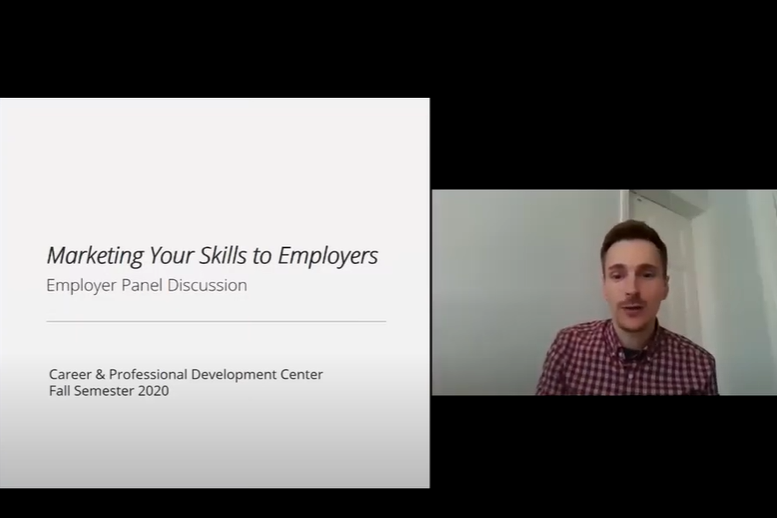
Helping Your Student Navigate Job Offers
This past summer, many Carnegie Mellon students completed their summer internships either virtually or in-person. Many of these students will receive invitations to return to the employer for another summer internship or as a full-time employee. This offer can be a source of joy and stress. The Career and Professional Development Center (CPDC) can assist your student in the offer-evaluation process, and we want to prepare you with information to share with your student when they seek your input.
Reasons Why Students Accept Jobs
The CPDC surveyed students in the spring of 2018 as to why they accepted a job/internship offer. The three most cited reasons were:
- Company Culture/People: Who you interact with on a daily basis and the environment in which you perform your work highly impact job satisfaction. A 2018 Global Talent study (n=366,000) by Boston Consulting Group and The Network identified what matters most on the job for employees. The most popular reasons for U.S. employees were related to one’s work environment and the people with whom one would interact on a daily basis. Working for an organization that supports its employees while providing challenging growth opportunities is something we want for our students in their careers.
- Projects/Job Function: It is important for your student to consider the projects and type of work they will be asked to perform. Will the work projects challenge your student and allow them to grow professionally? Does your student find the work interesting and meaningful? A work environment that offers free lunches, unlimited vacation, performance bonuses, or other benefits won’t matter at all if your student dislikes the day-to-day job functions.
- Industry of Interest: LinkedIn looked back at 20 years of data and noted that Millennials will have an average of four job changes in their first decade after graduation (Gen Xers averaged two changes). Knowing that one’s employer will likely change (possibly several times) over the coming 10 years, CMU students focus more on landing a good opportunity in their industry of interest. Focusing on securing a role in the preferred industry can take some of the stress off of the idea that one has to land a role with the mythical “perfect” or “dream” company.
Student Should Feel Confident with Their Decisions
Saying yes to one opportunity means saying no to other opportunities (at least for the immediate future). The feeling of losing out on an experience can cause students to doubt their decisions as they wonder, “What else is out there?”
Consider these tips to help students feel more confident in making their decisions:
- A return offer after an internship comes with the good—and bad—parts of the opportunity. It is common for job seekers to focus on only the positives when considering a new role/employer. Remind your student that all employers and roles have their downsides – and one usually does not discover these shortcomings until working at the company. Students should not throw away a good opportunity just because their current role/employer had some downsides.
- Internships provide students a glimpse into a potential job and employer. If your student is not excited about the prospect of spending more time at that job or employer, they should seriously heed that feeling. Encourage your student to be honest with themselves and not hold onto job offers that would not make them happy. This advice is particularly relevant for students who are considering a return internship offer – they have the opportunity to use future summers to explore other industries, jobs and employers.
- Support your student choosing the role and employer that is best for them – not necessarily the one you/friends/family think your student should accept. Remember, you don’t have to work there; your student does.
- Encourage your student not to approach this choice as life-defining. Selecting a career path is a major life decision, but jobs will come and go. Support your student in finding a role that will allow them to grow professionally and work in an environment where they feel supported – in short, a role where they will be successful.
Carnegie Mellon Has an Offer Policy
The final piece of information the CPDC would like all parents and families to know about is CMU’s offer policy. The CPDC and its academic partners designed the policy to protect students from receiving unfair response deadlines from eager employers. If your student has received an offer with a very tight response timeline, please have them reach out to the CPDC. More details can be found here: CMU Offer Policy.
The employment decision-making process can feel overwhelming. And, just like you, we are here to support your student through this process. We encourage students to schedule time with a CPDC team member to review their offers and ask questions. Your student can schedule a meeting (phone or video) with a career consultant through their Handshake account. We also encourage you and your student to follow the CPDC on LinkedIn for breaking news, career event updates and other CPDC-related opportunities.